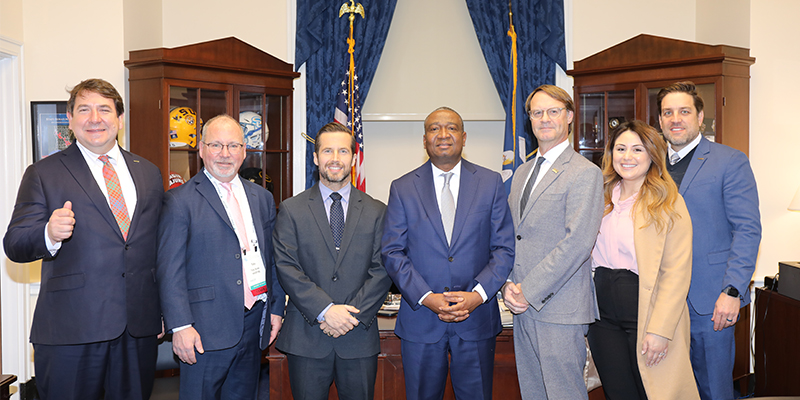By Marie Ruff
“Will [Artificial Intelligence] revolutionize real estate investment, or are we overhyping it?” asked Doris Pitilon, Chief Technology Officer, Faropoint, during a session this week at NAIOP’s I.CON East in Jersey City, New Jersey. She explained that there are many types of AI, all with different functions, including deep learning, which tries to mimic the human brain, and generative AI, which tries to create new content from existing content.
“Will AI change the world? It’s hard for us to imagine how it’s going to be, but it probably will change the world somehow,” Pitilon said. Compared to many other technologies, AI has been adopted at an accelerated rate: Whereas the telephone took 24 years to reach 1 million users and the internet reached 1 million users in three years, ChatGPT achieved that adoption metric in just five days.
AI is fundamentally a sprawling network of connections between tons of variables. The AI models understand the connections between all of them and predict the next point in time, she explained.
“How to determine property value, for example,” Pitilon said. “What do you need to look for or know to determine the value of a property? Rents, suite size, location, tenant credit, property condition, asset class, supply/demand …”
But the concept of AI is taking all these features, applying 30 years of information about what really happened in the market, giving the model the ability to determine what most affects the price of a property, she said.
Faropoint, a tech-enabled U.S. industrial real estate investment manager, began developing their own AI models around four years ago, said Chief Investment Officer Ohad Porat.
“It enables us to take a portfolio with 122 leases and underwrite it in five minutes,” Porat said.
“When we started, people didn’t adopt this product in-house because the accuracy wasn’t great,” he said. “But if you look at AI like a kid, as it starts out it doesn’t make a lot of sense, but as it gets older it does – it’s a compounding effect.”
Humans lack speed and ability to scale; humans are biased, which affects accuracy; but humans are better at identifying unique characteristics, said Pitilon. If a building or point in time is unique, such as a period of great instability in the global economy, there is typically not enough data available for AI models to make an accurate assessment, Pitilon said.
The Faropoint team sees the solution as combining humans’ ability to identify unique situations with the speed, scale and accuracy of an AI tool like Faropoint’s proprietary REXy.
“It’s hard to give trust to [AI] models where it’s a black box, especially when you are a professional in the field. You want to know why and the assumptions” affecting the results, Pitilon said.
REXy provides transparency in its ranking methodology, in addition to providing rent estimations, enabling the end user to make more informed decisions. It also notes confidence levels for each assessment.
“We give the confidence level to the analysts and the acquisition teams so they can know how accurate the model is,” she said. “If it’s a unique property, the confidence level will be low because there is less data available.”
“We don’t believe [AI] will replace real estate people, but it will replace the real estate people who aren’t utilizing technology or AI,” Pitilon said.

This post is brought to you by JLL, the social media and conference blog sponsor of NAIOP’s I.CON East 2025. Learn more about JLL at www.us.jll.com or www.jll.ca.








